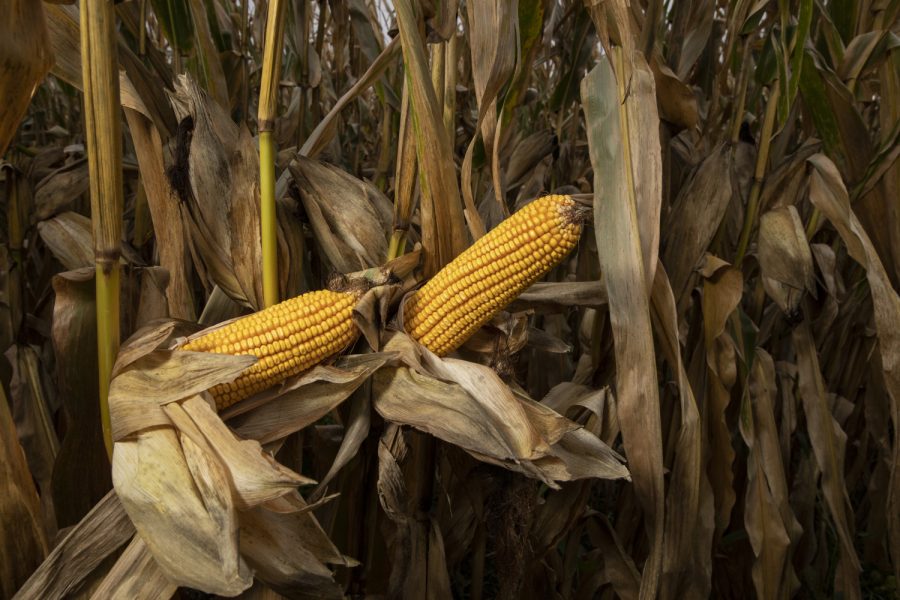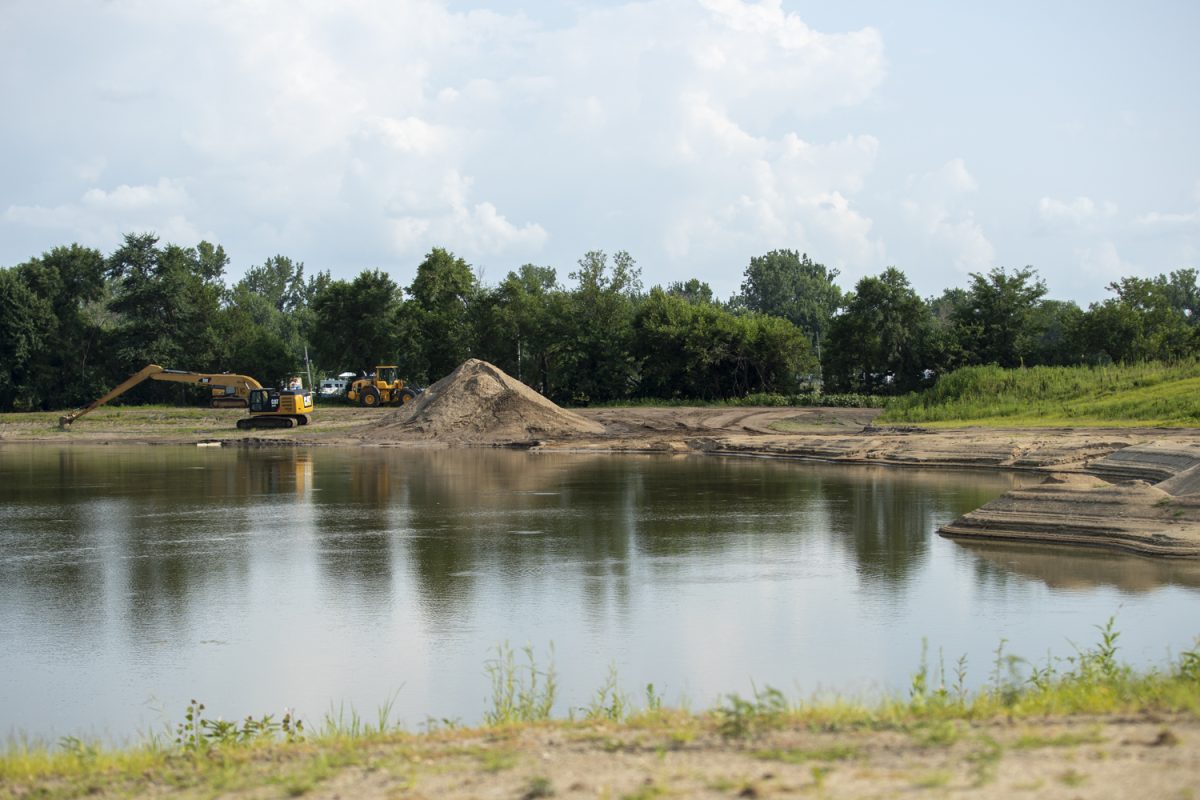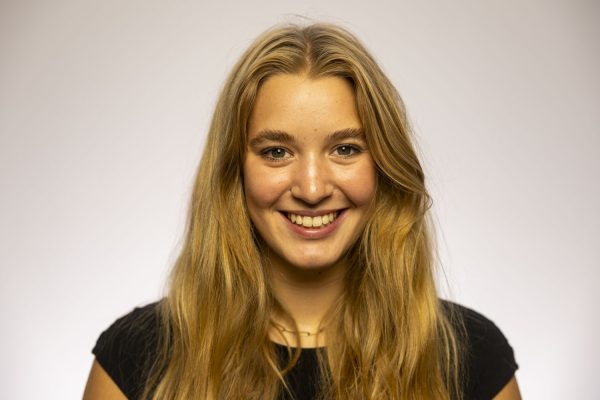University of Iowa environmental engineering graduate student David Ramotowski has been developing a process that uses corn to remove harmful chemicals from soil.
Ramotowski won the 2023 UI College of Engineering “Three Minute Thesis” contest for his research.
Despite being banned in the U.S. since 1979, polychlorinated biphenyls (PCBs) are still present in the soil around the country because they never degrade. These carcinogenic chemical compounds, particularly harmful to humans, are deposited in soil over time due to leakages or fires in factories near fields or bodies of water.
Because PCBs are dangerous and don’t dissolve on their own, Ramotowski has been developing a method to remove the chemicals from the soil with biochar made from corn.
To create the biochar, a corn kernel must be heated at a high temperature with low oxygen, and what is left over is a carbon-rich material that bonds to the chemicals in the ground.
A colony of bacteria surrounding the biochar will then decompose the PCBs and eliminate them from the soil.
“Another Ph.D. student in my lab was testing different types of materials to make the biochar, and she found that the corn kernels were the best in terms of being the home for the bacteria,” Ramotowski said. “I just thought that was really interesting because Iowa is the No. 1 corn state, so I think finding new uses for corn is pretty important.”
UI graduate student Qin Dong has also been working on the project, but her focus is on encapsulating the bacteria and the biochar in a cover called sol-gel. This cover will keep the bacteria on the biochar and help keep them alive longer.
“You can imagine the sol-gel as a glass cover, which has bacteria inside this glass cover and then small pores on the outside,” Dong said. “The pore size is smaller than bacteria, so bacteria will not leak out but the contaminants can go inside.”
The next step for Ramotowski and Dong’s research is to deposit the bacteria and biochar in New Bedford Harbor, Massachusetts — a major site for PCB contamination because two major manufacturers of electronics operated in the area from the 1940s-‘70s, depositing toxic waste in the harbor.
RELATED: UI engineering professor receives distinguished award
Ramotowski’s graduate program advisor and professor of civil and environmental engineering Tim Mattes said the work being done in the lab is crucial to solving the PCB contamination issue across the country.
“Current management strategies such as dredging are expensive and do not destroy the PCBs,” Mattes said. “We need to develop innovative and effective methods for mitigating PCB pollution. These are definitely relevant and current trends in the field of environmental engineering.”










